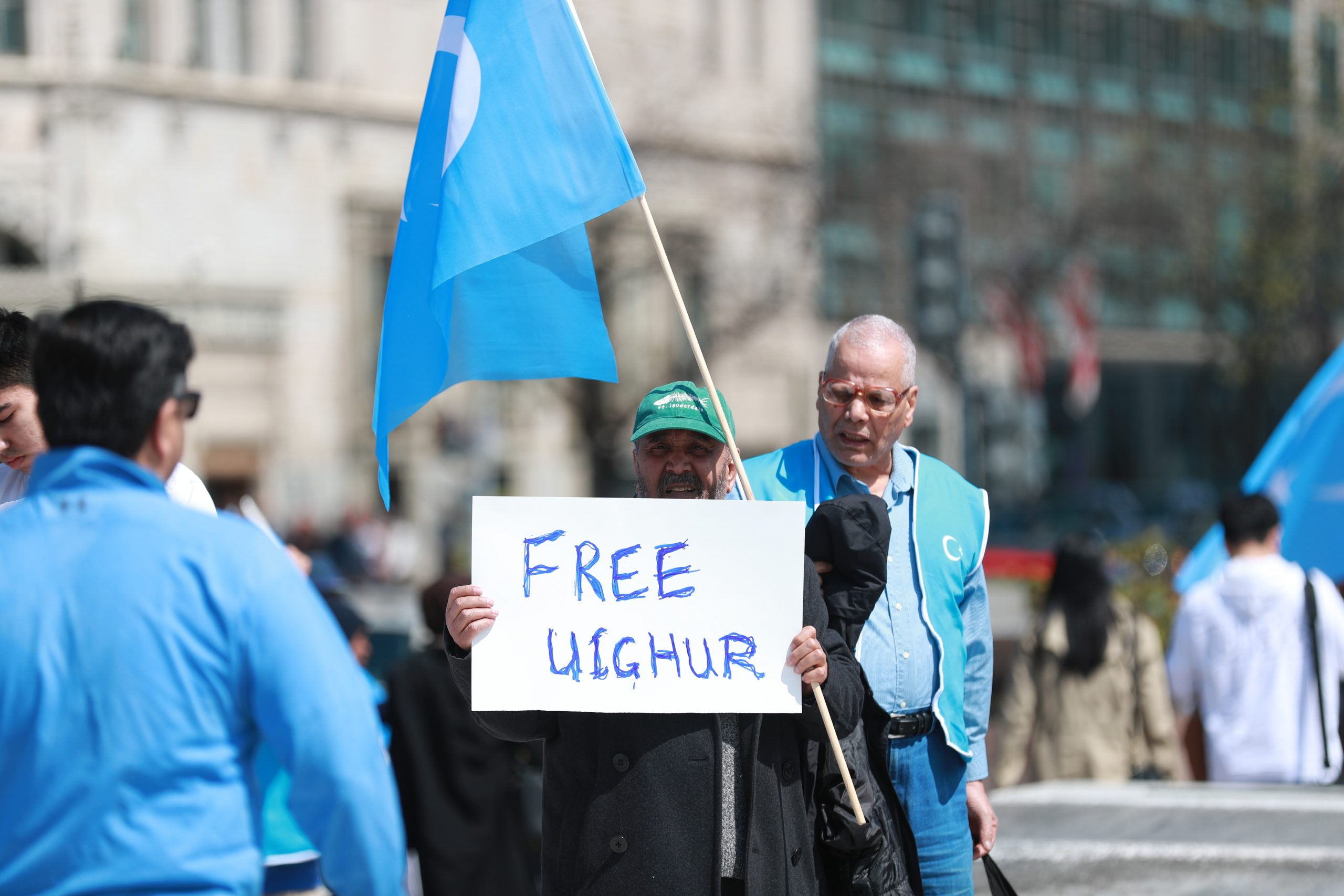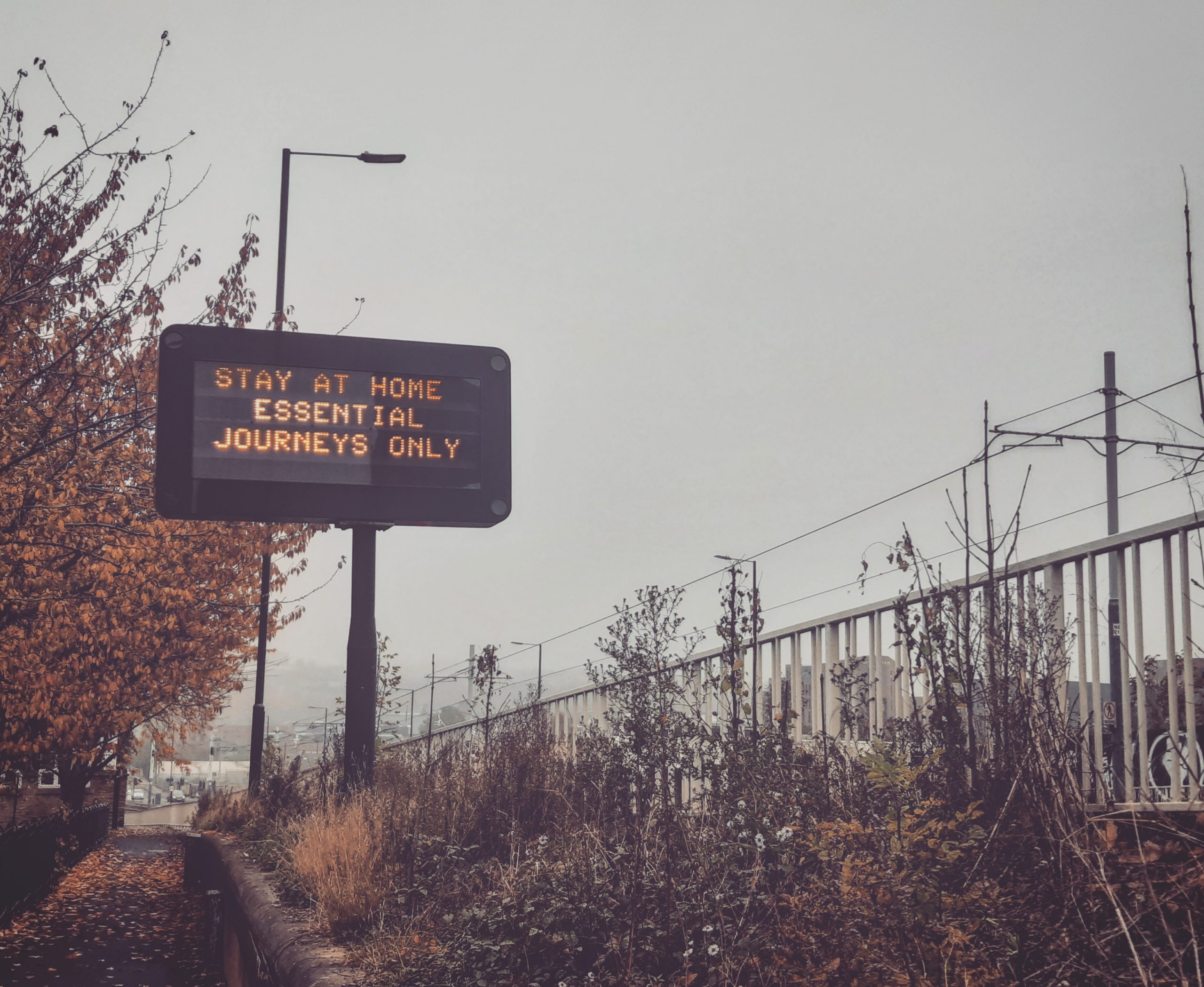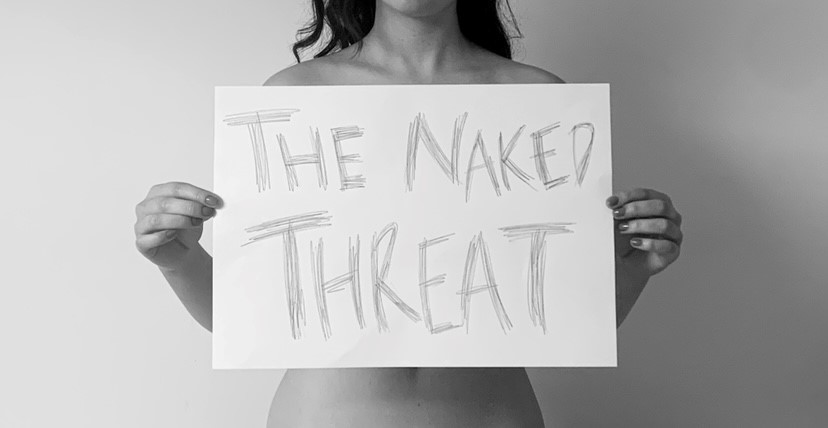Clothing brands including Primark, ASOS and Ralph Lauren are among 103 companies at risk of using cotton made by forced labour in China’s Xinjiang region, by buying through intermediaries, a new report says.
Human rights groups say more than a million Uyghur Muslims have been detained in re-education camps in the Xinjiang region. It is also alleged they are being used as forced labour to produce goods such as cotton. China has consistently denied these allegations.
A report from Sheffield Hallam University has explored how this cotton makes it way into the international supply chain. The report says the cotton is bought by intermediate manufacturers in countries such as Bangladesh, Vietnam, Philippines and Hong Kong, where clothes are finished for major western brands.
It says brands “may be unaware of the Chinese manufacturers their suppliers are sourcing from”.
Professor Laura Murphy, the senior researcher of the report, said: “Companies need to be required to trace their entire supply chain, make them transparent to consumers, and to be responsible and accountable for human rights abuses they know exist
“Companies will not make the choice to make human rights due diligence on their own, they’re going to have to be compelled by government action”

Professor Laura Murphy
What’s happening in Xinjiang?
The Xinjiang region produces 85% of China’s cotton, and 20% of all cotton used worldwide. According to Labour Behind the Label, a campaign that works to improve conditions for workers in the global garment industry, it’s likely that 1 in 5 of all cotton garments are made with products produced by Uyghur forced labour.
The Chinese government denies any violation of human rights in the Xinjiang region. It insists its policies towards Uyghurs only exist to tackle extremism, and say that its state-sponsored labour programmes are used to assist poverty alleviation.
However, testimonies included in the report suggest that those enrolled in labour programmes are either not paid, paid under minimum wage, or are even being forced to pay their employers for housing in excess of their wage, creating debt bondage.
How does the supply chain work?
The cotton picked and produced under these conditions is bought by intermediary manufacturers, and is then made in to garments which are possibly being sold by high-street brands, the report alleges.

Infographic from the Sheffield Hallam report showing how Xinjiang cotton gets in to global supply chains.
The report investigates five of these manufacturers sourcing cotton from the Xinjiang region, and then identifies the companies who obtain goods from there. The companies named range from high end brands such as Calvin Klein and Tommy Hilfiger, to high-street names such as ASOS, Nike and River Island.
Although none of these brands source directly from the Xinjiang region, and maintain their manufacturers do not use cotton produced in the region to make their products, the report says their complex supply chains makes it hard to know.
Campaigns director at Labour Behind the Label Meg Lewis said: “Sadly it’s not surprising, and the report shows the scale of the problem
“The fact that Uyghur produced cotton is moving through very complex supply chains with multiple different levels and intermediaries’ means that even the brands who have made a commitment not to produce Uyghur produced goods may still be purchasing goods that are tainted by Uyghur forced labour”
The report from Sheffield Hallam reached out to all 103 of the named companies, and included responses they received from 21 of these brands including ASOS and Primark.

Popular high street shops who are named in the report.
An Adidas representative said “We can confirm that none of the yarn or fabric used for Adidas products in these manufacturing units originate in China and we hold no sourcing relationship with the textile firms listed in your research.
“We have a nomination process in place for our materials and a materials traceability tool. Suppliers are only permitted to use authorised materials when making our products and none of the yarn manufacturers named in your case studies are a part of our supply chain.”
Brands that did not provide a comment include Calvin Klein, River Island, GAP, Ralph Lauren and Tommy Hilfiger.
Professor Laura Murphy, the senior researcher on the report said: “Companies are not doing enough. It surprises me that companies are willing to rely on such weak assurances from their supplier.”
What can you do as a consumer?
All of these brands are considered to be ‘fast fashion’ brands, which means they mass produce garments at a low cost for high profit. There has been lots of criticism surrounding the ethical repercussions of fast fashion from groups such as Oxfam and The Clean Clothes Campaign who highlight the environmental impact of the fast fashion industry and their record of poor working conditions.
Despite this, many people rely on fast fashion for clothing. Research commissioned by Oxfam estimated that more than two tonnes of new clothing are bought each minute in the UK alone.
Esme Cawley, a 22-year-old student from Sheffield said: “I try to avoid buying from fast fashion brands wherever I can, but if I have to use them it’s because I’ve left [buying an outfit] too late and they’re the only brands that can deliver to me on time”
Others feel as though buying from fast fashion brands are their only option due to their monopoly of the market and the cheaper price point of the items.
To help reduce the harmful impacts of fast fashion on exploited garment workers, Professor Murphy said: “Consumers need to make their dismay known to companies and say that they will not buy forced labour made goods
“In the meantime they can buy used clothing from the robust used clothing market in the U.K which is so much more sustainable.”
You can read the full report from the Helena Kennedy Centre at Sheffield Hallam here.



